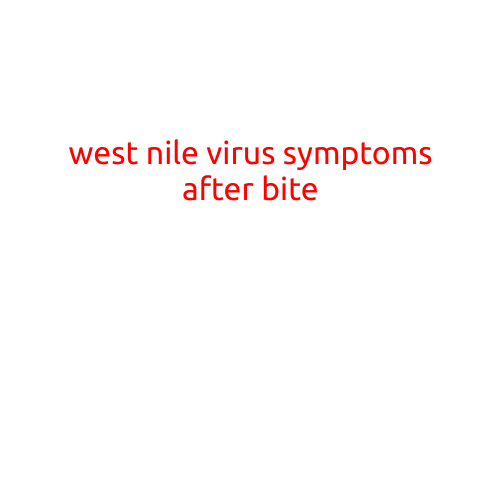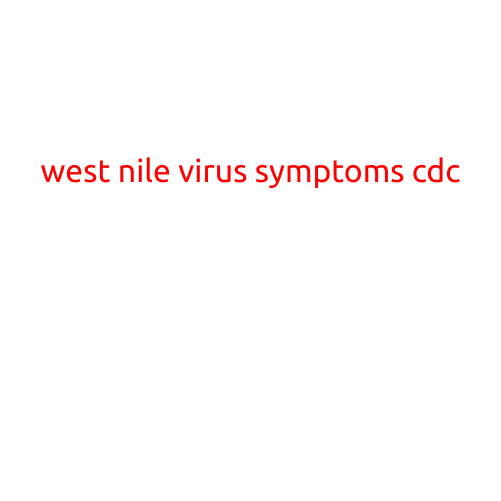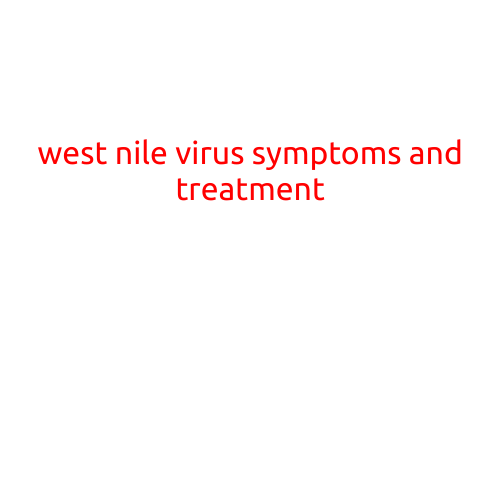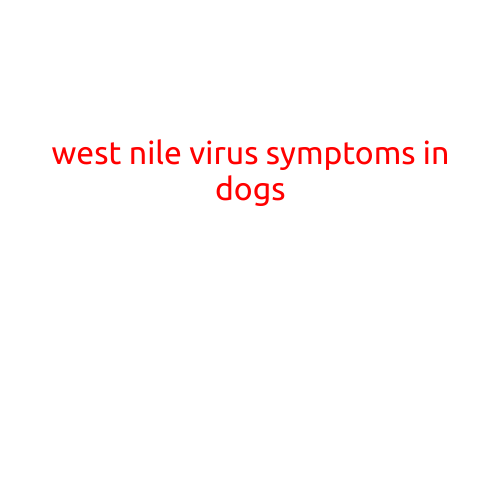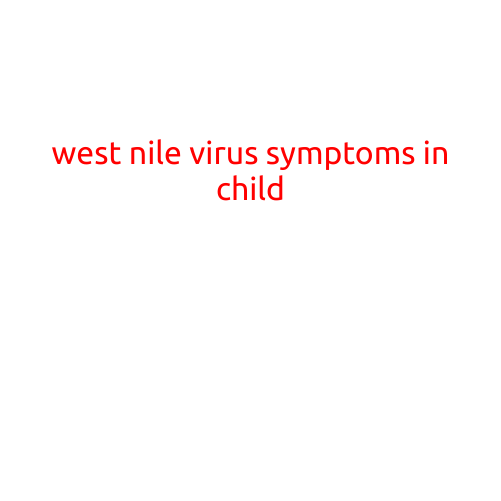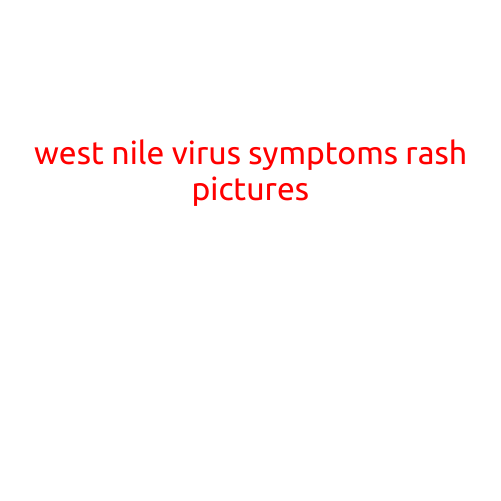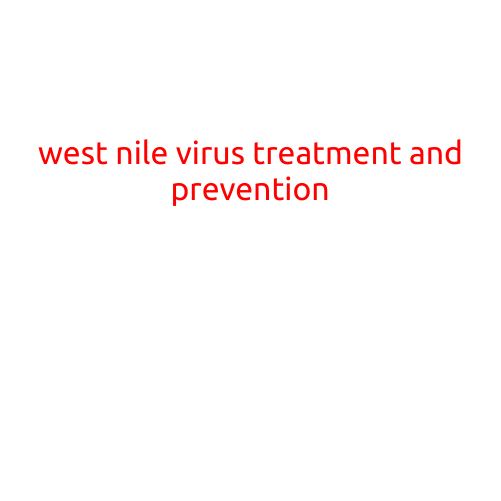
West Nile Virus Treatment and Prevention
West Nile virus (WNV) is a mosquito-borne disease that has been linked to thousands of cases and hundreds of deaths in the United States and around the world. While there is no cure for WNV, there are effective treatments and preventive measures that individuals can take to reduce the risk of infection.
Symptoms of West Nile Virus
The majority of people who contract WNV will experience no symptoms or mild symptoms, such as:
- Flu-like symptoms, including fever, headache, and body aches
- Mild rash
- Swollen lymph nodes
However, in some cases, WNV can progress to a more severe form of the disease, leading to:
- Symptomatic illness, such as encephalitis (inflammation of the brain) and meningitis (inflammation of the lining around the brain and spinal cord)
- Neurological symptoms, such as confusion, tremors, weakness, and paralysis
- Seizures and coma
Treatment for West Nile Virus
At present, there is no specific treatment for WNV. In severe cases, treatment may involve:
- Supportive care, such as rest, hydration, and pain management
- Antiviral medications, such as ribavirin, although the effectiveness of these medications for WNV is limited
- Intravenous immunoglobulin (IVIG) therapy, which involves the administration of antibodies from healthy donors to help the body fight off the infection
Prevention of West Nile Virus
Prevention is key to avoiding WNV. Here are some steps you can take to reduce your risk of infection:
- Avoid mosquito bites:
- Wear protective clothing, such as long-sleeved shirts, long pants, and socks when outdoors
- Use insect repellent, such as DEET, picaridin, or oil of lemon eucalyptus, on exposed skin and clothing
- Avoid areas with high mosquito activity, such as standing water and dense vegetation
- Eliminate standing water:
- Empty standing water from containers, such as flowerpots, bird baths, and pet water dishes
- Keep roof gutters and drainpipes clear of debris
- Fix any leaks or water damage
- Use air conditioning and screens:
- Stay in air-conditioned spaces with screens, especially during peak mosquito hours (dawn and dusk)
- Install window and door screens to prevent mosquitoes from entering your home
- Get vaccinated:
- The FDA has approved the WNV vaccine for people over the age of 18 who are at high risk of infection, such as those who live in areas with high WNV activity, work outdoors, or work in healthcare settings
- Consult with your healthcare provider to see if the WNV vaccine is right for you
Personal Protective Measures
In addition to these preventative measures, there are some personal protective measures you can take to reduce your risk of WNV:
- Wear mosquito repellent and protective clothing
- Avoid being outdoors during peak mosquito hours
- Use mosquito nets if you are sleeping outdoors or in areas without screens
- Keep areas around your home free of trash and debris
Conclusion
West Nile virus is a serious and potentially life-threatening disease, but there are steps you can take to reduce your risk of infection. By understanding the symptoms, treatment, and prevention of WNV, you can help protect yourself and your loved ones from this mosquito-borne illness. Remember to always take personal protective measures and take preventative measures to eliminate standing water and reduce mosquito populations.
